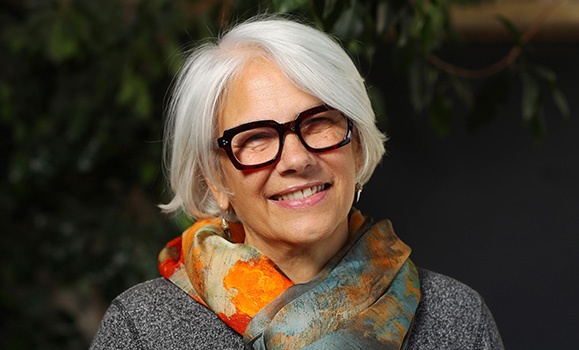Acclaimed ������Ƶ University bioethicist and scholar Dr. Françoise Baylis has been named a recipient of the Canada Council for the Arts Molson Prize, given to only two people every year for their significant contributions to the country's intellectual and cultural heritage.
The Council announced the two winners Monday (May 8), honouring Dr. Baylis with the social sciences and humanities prize for her outstanding achievements in academic research that centres on the complexities of how health-care ethics intersect with technology, policy and practice.
Dr. Baylis, the first ������Ƶ researcher to receive the Molson Prize, has over the span of her career become an influential voice in the field of bioethics and a leader in advocating for the ethical application of science, with the goal of bettering society.
At the heart of her scholarship is the hope that she helps generate debate on issues that can be uncomfortable and ethically challenging, but which she believes should be fostered and part of the public discourse.
"It really is quite wonderful to receive this prize," she says of the award, valued at $50,000. "I'm just hopeful that it creates opportunities for me to share my ideas about the substantive issues I care about with a wider audience.”
"I also hope it sends the message that there can be legitimate links between academia, advocacy and activism because that is how I understand my work."
A plea to slow down
Much of that work recently has focused on the ethical questions linked to the introduction and application of emerging technologies, something she says shouldn't be rushed at the expense of considering potential harmful consequences.
"When we embrace a new technology, it's because we can see all the potential benefits and I worry that sometimes as we trip over ourselves in pursuit of the good that we don't always scan the horizon to see who might be hurt," she says.
“In much of my work, what I'm trying to suggest is that the primary question we need to be answering is, 'What kind of world do we want to live in?' It is only once we can figure out the answer to this question, that we can then turn our attention to narrower questions such as, 'And how might this technology help us build that world?'"
Dr. Baylis, a Distinguished Research Professor, Emerita in Philosophy at ������Ƶ and author of , has been at the centre of global debates on research involving humans, assisted human reproduction, public health, and heritable genetic modifications. Because of her leadership on these issues, she is often called on to be part of groups shaping policy in these areas, including most recently the WHO Expert Advisory Committee on Developing Global Standards for Governance and Oversight of Human Genome Editing and the WHO Global Guidance Framework to Harness the Responsible Use of the Life Sciences. As well, she was a member of the planning committees for the First International Summit on Human Gene Editing (2015) and the Third International Summit on Human Genome Editing (2023).
Recommended reading: Creating and implanting synthetic monkey embryos could pave the way to stem‑cell babies

